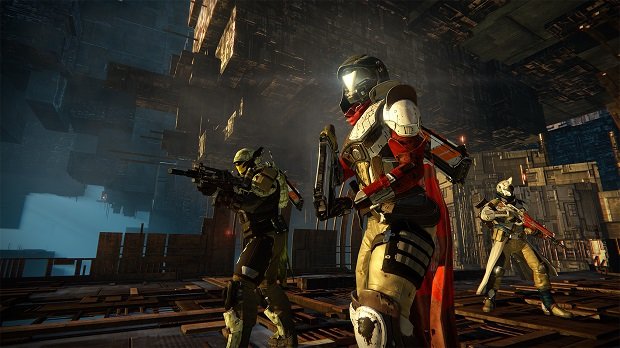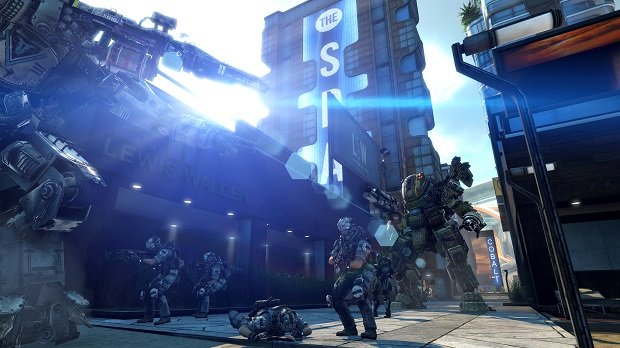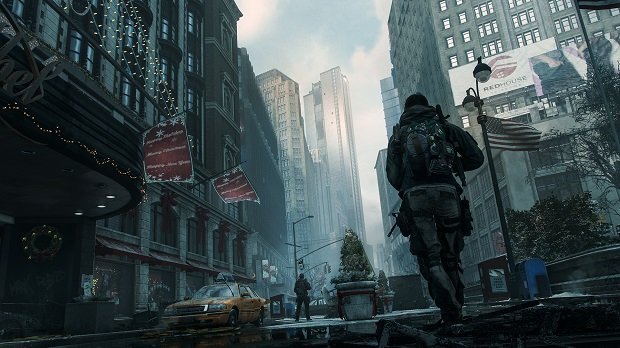You don't own an online game, you're buying a ticket to a virtual theme park
Modern gaming is pretty great. We can connect with other players in ways we only dreamed of previously, whether we're completing daily strikes alongside strangers in Destiny, or battling for leaderboard domination in Geometry Wars 3. The connected experience is becoming standard, updating games with entirely new features and allowing players to band together or compete in genres that were, up until now, completely static and offline.
Unfortunately, all of it comes with a built-in expiration date - but maybe that's not as bad as it sounds.

Server shutdowns are a fact of gaming life that tends to get glossed over, as trailers espouse the values of being a part of a living, breathing world filled with thousands of other players, as publishers want your hard-earned cash as quickly as possible. But the reality of the situation is this: anything with an online component costs money, both to power the servers that host these games and to pay for the people to maintain them. When the cost of running those servers becomes greater than the money these studios make off of them, when the audiences for those games dry up, that's when publishers pull the plug and a major bullet point on the back of the game's box ceases to exist.
Despite their perpetual cost, publishers continue to transform games into a living 'service' rather than a single, static product, and in theory, the idea is great. More and more games are trying to emulate MMORPGs or provide the social experience we get from platforms like Facebook by integrating single-player and multiplayer into a cohesive whole, and it's great to wake up and see your favorite game filled with loads of new content and features, to run around your favorite worlds with actual people. But death is a natural part of life, and 'games as a service,' by their very nature, can't last forever.
What's going to happen to Destiny after its ten year plan runs its course? What about games like The Division, whose very gameplay hinges on those emergent moments you have with other players? Or multiplayer games like Titanfall, which are essentially worthless without online functionality? These games will be relegated to a fate typically reserved for failed MMORPGs: they become digital paperweights, worthless heaps of code without a purpose to fulfill.

This isn't necessarily a bad thing. Millions of people enjoyed the hell out of games like Star Wars Galaxies and City of Heroes before they were eventually taken offline (usually in some spectacular, once-in-a-lifetime cataclysmic event). It's unfortunate that these games will never get to be played again, but in many ways their temporary nature is worth it, as they provide something no other medium can match: the randomness of human interactivity.
Take The Division's Dark Zones, for example. It sounds like an anarchist free-for-all that aims to throw the social contract out the window - a grand experiment that can only exist by taking the single-player quest for self-betterment (through equipment and experience) and tossing players into an online space where friendly fire is permanently switched on. It sucks when games like 1 Vs. 100 or Majestic get deactivated, and it'll suck when this game goes offline too, depriving future generations of its unique design. That doesn't mean they shouldn't be made, though. It just requires a change of how we view online games.
Weekly digests, tales from the communities you love, and more
The online experience has become so ubiquitous in gaming that we can no longer look at the boxed copy as a stand-alone product, as something that, once purchased, is ours forever. Instead, we have to start thinking of them like purchasing a ticket granting us extended yet temporary access to a virtual theme park. People spend hundreds of dollars to visit Disneyland, to walk around the park grounds, ride the rides, and take pictures. They reminisce about old rides that have since been dismantled, but then experience the joy of the new rides built in their place. While they may have nothing physical to show for their purchase (even souvenirs can't replicate the thrill of Space Mountain), they take the memories of their time at the park and the fun they shared with family and friends with them.

Games are changing in a similar way. Destiny's servers may someday go offline and the game may disappear forever into the annals of history, but you will always have the memories you share with your friends. That time you first figured out how to beat the Vault of Glass. That time a Gjallarhorn randomly dropped from a treasure chest in the Prison of Elders. And thanks to YouTube, these memories can live on far longer than their servers' built-in expiration date.
These are strange times we live in, as the wider gaming industry embraces the internet to devise experiences of play that we've never seen before, but with it comes with a whole new set of problems that no other medium has had to deal with. In many ways, the immediate joys of connecting with other players is worth the trade-off, but it's equally as depressing to know that the game you're playing won't be the same once that connectivity is gone - if the game even continues to exist at all. So enjoy games like Destiny and The Division while you can, and share those memories with anyone who will listen, whether through YouTube, a blog, or just by talking about those games with your friends - because any online game's lifespan is finite, and the clock is already ticking.



